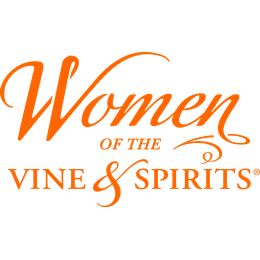SUPPLIER DIVERSITY
Women of the Vine & Spirits is committed to raise awareness and educate the alcohol beverage industry about Supplier Diversity programs. We aim to further women’s economic empowerment and to be a catalyst for companies to create and grow their own programs.
What is a Supplier Diversity Program?
A Supplier Diversity program is a procurement practice that involves purchasing products or services from businesses that are owned by a diverse supplier. Companies that have Supplier Diversity Programs recognize the importance of having a diverse supplier base that reflects their employees and customers around the world.
Why is a Supplier Diversity Program Good for Business?
- It signals to consumers that you are in tune with their needs
- It raises your corporate profile and enhances community engagement
- Increases local jobs and for talent retention/recruitment
- It is good for innovation solutions and business development
- You align with the corporate values of your partners
- You tap into new ideas that add value to your business
- Taps into new markets and can increase company profits
What is a Diverse Supplier?
A diverse supplier is defined as a business that is at least 51 percent owned, managed and controlled by a diverse person or group.
“Controlled" means actively exercising power to make policy decisions, and "operated" means active involvement in the daily management of the business.
What are Tier 1 and Tier 2 Suppliers?
Tier 1 suppliers are the companies that directly sell supplies and resources. Tier 2 suppliers are the companies that provide the tier 1 supplier with the product that is to be sold to the end user. The Tier 1 supplier may not be a minority or female-owned business, but they get the products they sell from suppliers that are minority or female-owned businesses. These suppliers are known as tier 2 suppliers. They don’t sell directly to the company, but they supply the companies that do.
Types of Diverse Suppliers & Certifications
Woman-Owned Business Enterprise (WBE)
Lesbian-Gay-Bisexual-Transgendered-Owned Business Enterprise (LGBT)
Minority-Owned Business Enterprise (MBE)
Veteran-Owned Business Enterprise (VBE)
Service-Disabled Veteran-Owned Business Enterprise (SDVOBs)
Disadvantaged Business Enterprise (DBE)
Small Business Administration 8(a) Program
Disability-Owned Business Enterprise (DOBE)
Note: A diverse business can fall under several categories and can be certified in each of its appropriate diversity designations.
What is the History of Supplier Diversity?
Supplier diversity began in the late 1960s and early 1970s in conjunction with the Civil Rights Movement in the United States.
Early U.S. government initiatives encouraged federal use of Minority Business Enterprises and Women’s Business Enterprises, but supplier diversity was not a mandate of the U.S. government. Certain industries with significant federal contracts—utilities, auto manufacturers, telecommunications—were among the first to become strong proponents of supplier diversity and soon recognized the benefits to their value chains.
In 1950, 9 out of every 10 Americans were White.
In 2000, 2.5 out of every 10 Americans were minority citizens.
In 2050, 5.3 out of every 10 Americans will be minority citizens.
Minorities were asking for a level opportunity to compete for business contracts.
March 5, 1969 President Nixon signed Executive Order 11458, which required government agencies and their contractors to contract with minority-owned companies and to report the results against pre-established goals.
